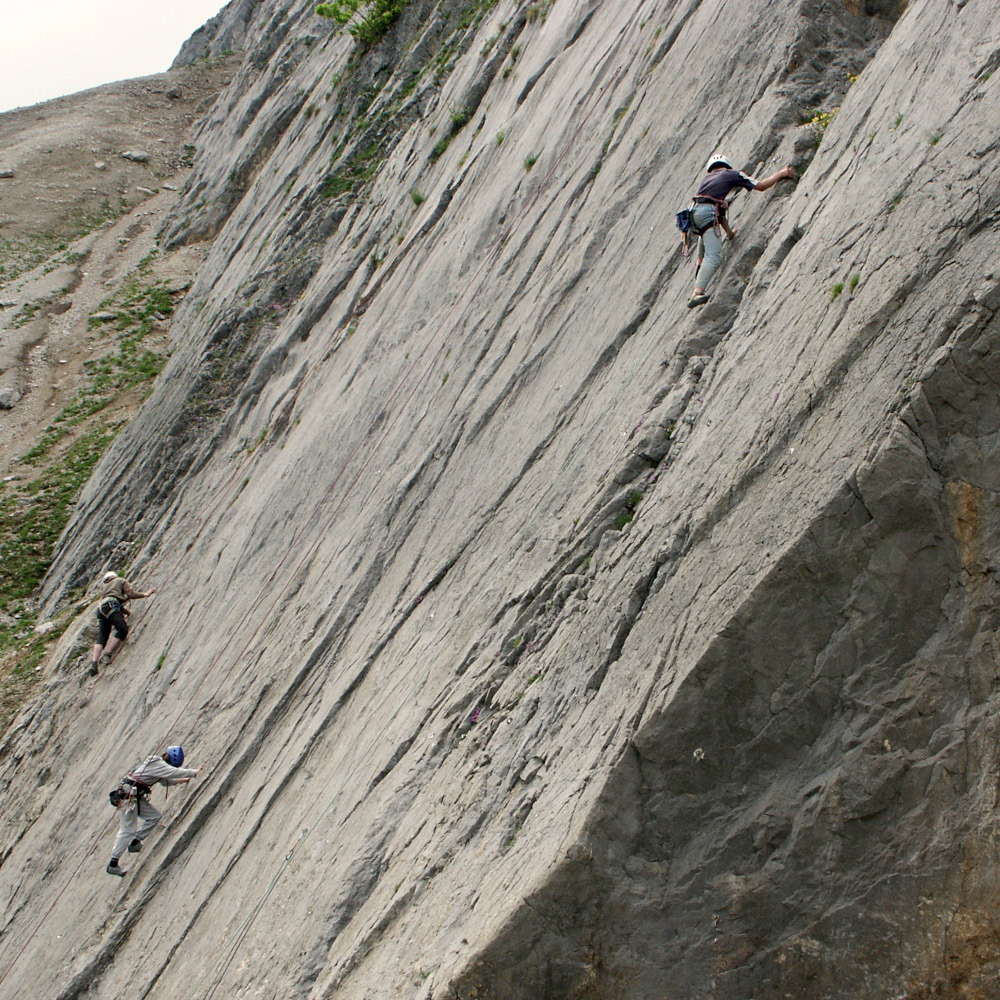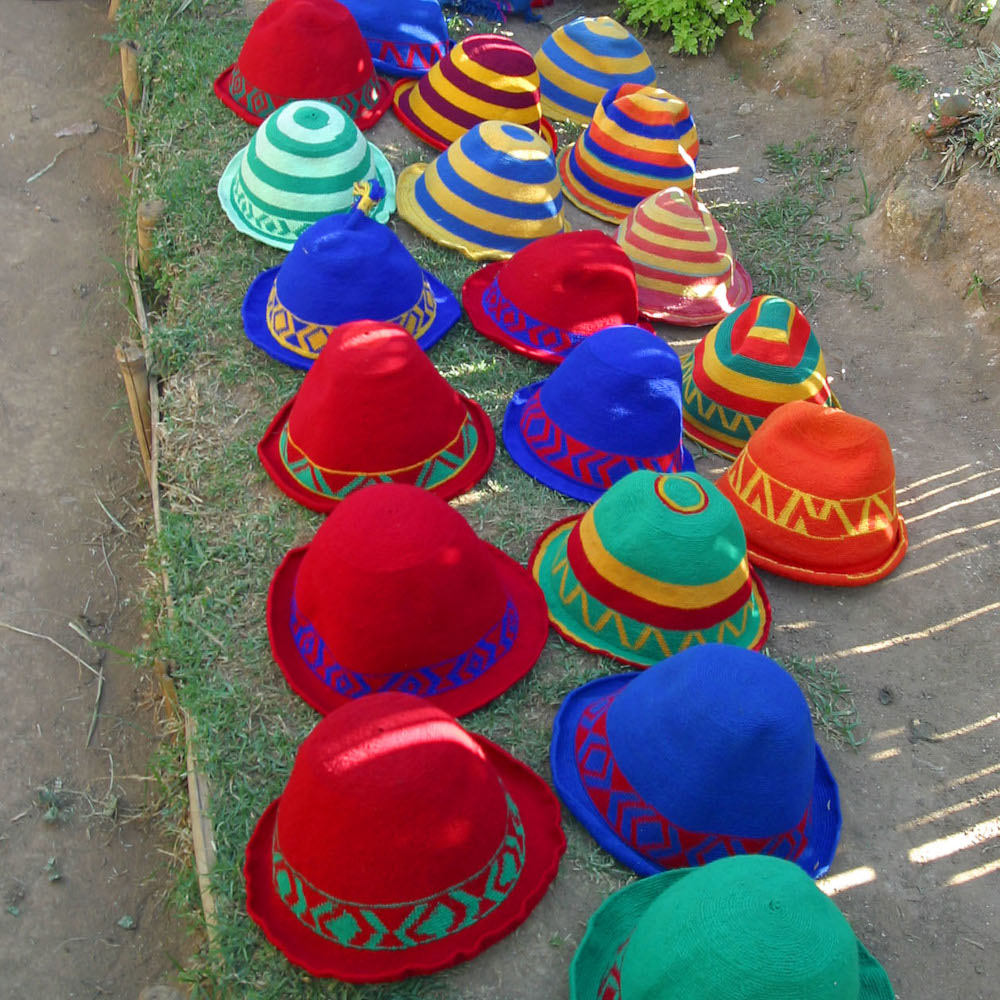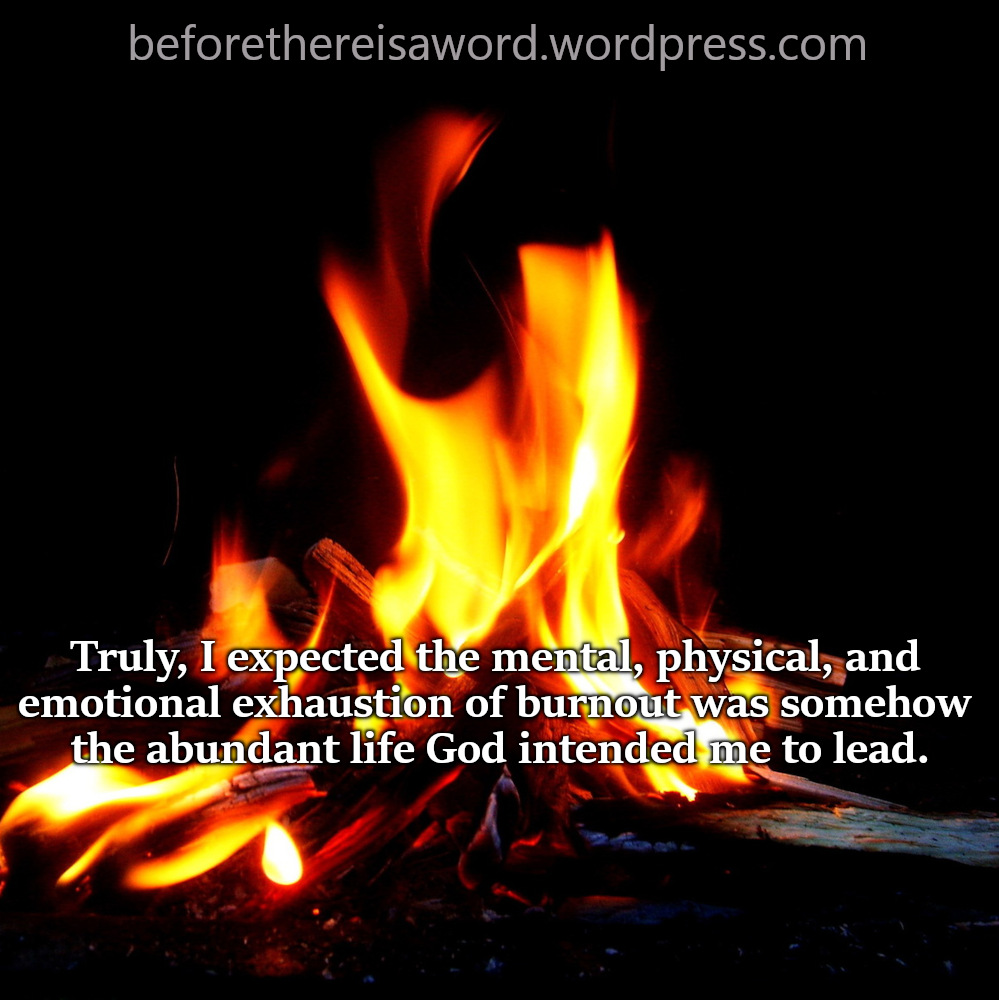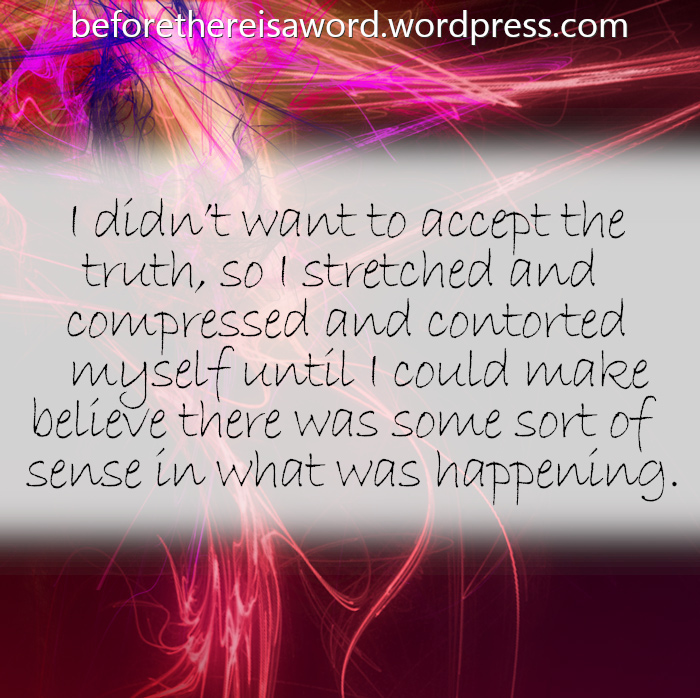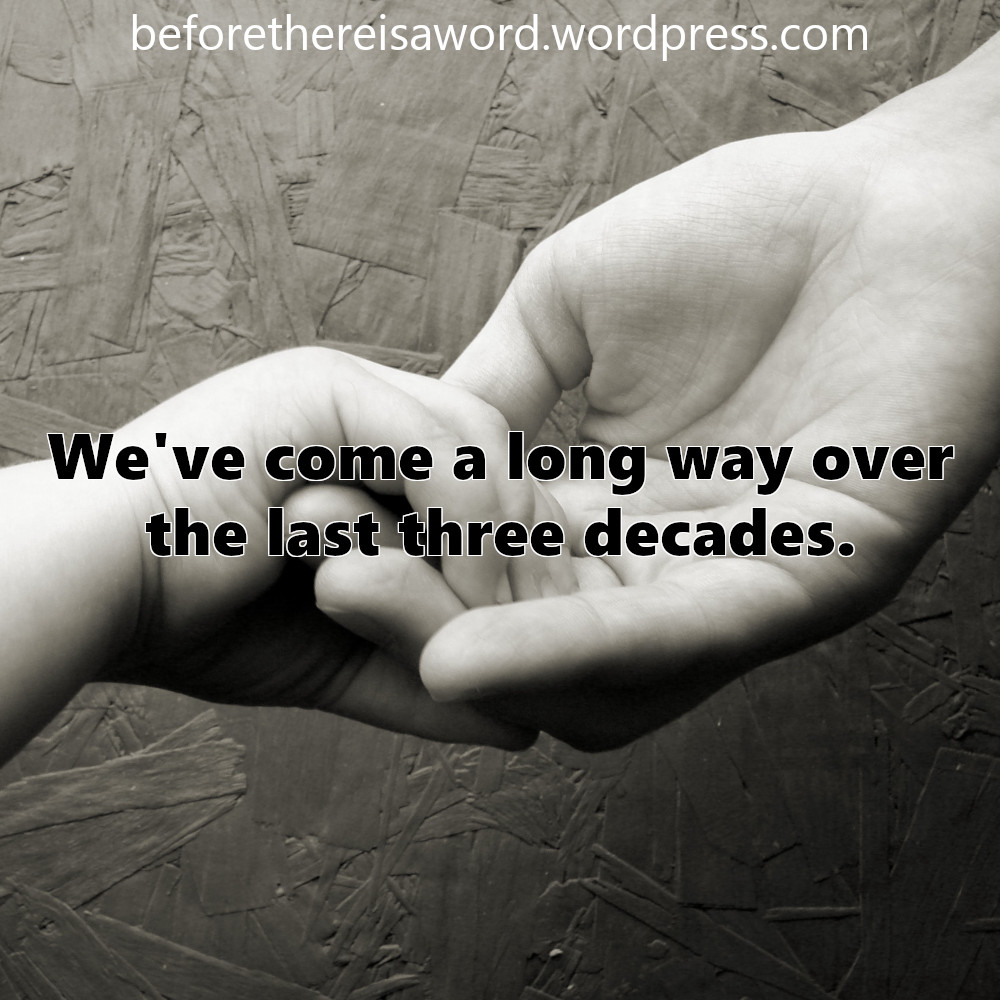(Content Warning: This post contains mentions of emotional abuse, physical abuse portrayed in the media, grooming behaviors, and self-blame.)
Why do we tell our stories? Who deserves to know hidden truths? What is the purpose of sharing the heartbreaking, stomach-churning parts of our intimate realities? Do we do it for show? Are we looking for accolades? Is there some inner restless diva bursting to get out?
No, to the last three. Who deserves to know? Probably very few people reading this. Why am I posting today? What is my purpose? Truth. Transparency. And maybe to be a voice for somebody who hasn’t seen their own story in the light of Love.
I didn’t write out most of what follows today. These words are several months old and the thoughts months older than that. I’ve shared this with a few trusted friends and have been encouraged to share in a more public way.
I learned I was abused more than a year after my husband died. I knew what had happened, of course. I wasn’t suffering from memory loss or stupidity. I simply didn’t have the language to categorize his insistence that I was manipulating him as projection, that I was making a big deal out of nothing as minimization, or that his angry outbursts were caused by the actions of the children and me as gaslighting.
I knew our relationship wasn’t all I’d hoped, and I understood I didn’t always feel comfortable with his behavior, but I managed to excuse it, because he’d been abused as a child, because he’d grown up with significant shame, because he’d battled depression throughout his life. The empathy I felt for him blinded me to the standards of accountability that should have been in place. Good boundaries were minimal or absent for most of our relationship.
As a victim of abuse, I carry my own shame. Why, as a smart woman, could I not see what is so obvious to me now? How did I recognize the discomfort, the sense of feeling something was wrong, yet not be able to pinpoint its cause? My higher education focused on the liberal arts with an emphasis on social science. I was trained to see patterns, yet I disregarded this one completely.
I loved my husband. I didn’t want him to be abusive. I waged an internal war, pitting what I could see and sense with what I so wished to be true. I denied my gut feelings urging me not to trust this person, and allowed myself to believe him when he told me full-blown lies and half-truths (which are also lies).
Participating in my victimization doesn’t paint me in a very flattering light, I don’t think. The fact that I didn’t recognize what I was doing at the time seems little more than an excuse. As an American girl raised in the 1980s, I saw my share of made-for-TV movies about battered women. I always wondered why on earth they allowed themselves to be treated that way. While Adam never physically abused me, I have begun to understand a little more.
I didn’t enter marriage expecting to be abused. I got married because I was in love, I cared about this person and I wanted to spend the rest of my life making him happy. That, right there, was the first problem. I can’t make anyone happy.
That’s not a disparaging remark about myself, but a simple statement of fact. No one can make anyone else feel any particular way. We are each responsible for our own emotions. That is part of the healthy boundaries I never learned growing up.
Both in my family and at church, I was taught to consider others more important than myself. There is even a Bible verse telling me exactly that.
Do nothing from selfishness or empty conceit, but with humility consider one another as more important than yourselves
Philippians 2:3 (NASB)
That does not say, you might notice, not to care for ourselves. It doesn’t suggest that adequate self-care is actual selfishness. In fact, the sentence continues into the next verse.
Do nothing from selfishness or empty conceit, but with humility consider one another as more important than yourselves; do not merely look out for your own personal interests, but also for the interests of others.
Philippians 2:3-4 (NASB)
I didn’t notice. That words “merely” and “also” escaped me entirely. I read on to the part where the exhortation is to be like Jesus, who “emptied himself” (v 7) in order to serve others. I believed my role was to ignore myself completely as I worked for the best of those I loved, and, as it happens, those I didn’t even like, as Jesus also instructed his followers to love our enemies (Matthew 5:44).
While I still bear responsibility for all the choices I make, I was not provided a healthy paradigm from which to make good decisions. At the outset of our marriage, I believed Bible passages calling for the husband’s leadership and the wife’s submission meant that when we came to a point of conflict we couldn’t resolve, I had to give in to Adam’s point of view, simply by virtue of his being a man and my being a woman. I thought he was meant to love me, “as Christ also loved the church and gave Himself up for her” (Ephesians 5:25, NASB), but even if he didn’t I was still supposed to sacrifice myself for him, even as Christ sacrificed himself for me, that he might have been “won over without a word by the behavior of [his wife]” (1 Peter 3:1, NASB).
The fact that I was a very bad complementarian wife, that I could never bring myself into a full state of subjugation under what I believed to be the God-ordained authority of my husband, simply reinforced my own sense of shame and my own willingness to accept Adam’s blame for our marital disharmony as biblical, holy, and right. It was not.
One of the classic findings among victims of domestic abuse is difficulty recognizing our abuse is real. Or harmful. Or not, at least partly, our own fault. These are the lies we are fed by our abusers, and sometimes our communities that—purposefully or unwittingly—reinforce the abuse.
Adam never hit me, so it wasn’t abuse, right? (Wrong.)
Adam wasn’t always seeking to be the center of attention, so he couldn’t have been a narcissist, could he? (He could.)
He didn’t know . . . except he did. He’d misunderstood . . . only he hadn’t. He didn’t mean . . . but he made the choice.
I claimed all the excuses, because I didn’t want to be married to an abusive man. I didn’t want to be an abused wife. I didn’t want to accept the truth, so I stretched and compressed and contorted myself until I could make believe there was some sort of sense in what was happening. And coming from a Christian tradition where great attention was paid to being all sinful and falling short of God’s glory (Romans 3:23), I’d learned I was not worthy of love. I understood my own failures to be a good wife to my husband, a good mother to my children, a good woman who emptied herself for others (and was fulfilled by these roles, rather than feeling resentful of everyone and everything demanding I give even more when I already was operating at a deficit) were the root cause of my unhappiness.
I couldn’t blame my husband, I felt, for what I’d brought down on myself. After all, what did Adam demand more than anything else but personal responsibility? He told me, he told the kids, we needed to take responsibility for our own actions, our own attitudes. We couldn’t blame anyone else for our behaviors or our choices. Yet we were to do as he said, not as he did, for he regularly insisted he only shouted because someone wasn’t listening or his anger was caused by someone’s disobedience or disrespect. He hid. He lied. He denied. And he claimed someone else was at fault.
I want to talk about how I’ve found such healing and am in a new healthy relationship and I can see all the good that has come from the pain, but I can’t. I’m not there yet. I am still in the trenches battling through this with myself. I am still revisiting old memories only to discover new examples of how truly damaging our relationship was, how utterly unhealthy Adam had been, long before he was diagnosed with the tumor that brought an end to his life. I am caught by my own compassion for a man I loved for more than half my adult life. The man I told, at the end of his life, he was worth loving forever. I haven’t been able to reconcile my own feelings yet. I am carried by waves of emotion from seething anger to gracious compassion to fear that I am damaged beyond repair. I understand I have to choose faith and trust and love, even when I don’t think I can.
Yet, even as I flounder in this fretful sea, the One whom even the wind and the waves obey holds me close and lets me know, over and over and over again, how very much I am loved.
I have a bit of an epilogue to add here. I said I hadn’t found healing and wasn’t in a new and healthy relationship. I worried that I wouldn’t be able to trust myself, that I’d simply fall into old patterns and choose another man who would treat me abusively. That’s no longer the case. While I am not fully healed, I am healing. And I have a new relationship that by its health is continuing to bring to light how much damage I lived with for so many years. The difference between what is now and what went before is palpable. I continue to be amazed at how much better it feels to actually be loved, rather than simply told I am.
